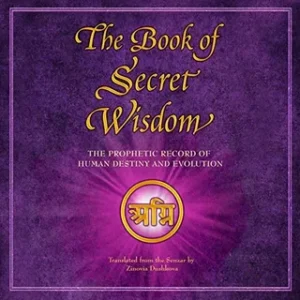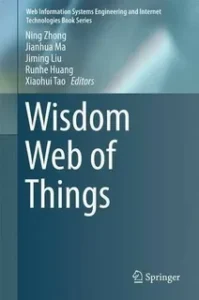What Makes “The Art of War” by Sun Tzu a Timeless Guide?
The Timeless Appeal of “The Art of War”
Written over two millennia ago by the Chinese general Sun Tzu, “The Art of War” has become more than just a military strategy manual. This short yet profound text, filled with wisdom on warfare and leadership, has been studied and applied by military leaders, business professionals, and even individuals seeking personal development. What makes “The Art of War” such a timeless and universal guide, and why does it continue to influence modern strategies?
Ancient Warfare and Modern Application
At its core, “The Art of War” is about understanding conflict and applying strategy to achieve victory, whether in battle or in life. While it was originally written for military commanders, its principles transcend the battlefield. Today, “The Art of War” is equally relevant in business, sports, politics, and personal development. The central themes—strategy, preparation, adaptability, and the psychological aspects of conflict—are universally applicable in any competitive situation.
1. The Importance of Preparation and Planning
One of the key lessons in “The Art of War” is the emphasis on thorough preparation. Sun Tzu advises that “every battle is won before it is fought.” Preparation, in his view, is essential for victory, and this principle is vital whether you’re heading into a business negotiation, pursuing a career goal, or preparing for a life challenge. The wisdom of Sun Tzu reminds us that success does not come from chance; it comes from meticulous planning, understanding the environment, and being aware of both your strengths and weaknesses.
In the business world, leaders and entrepreneurs often cite Sun Tzu’s teachings when crafting strategic plans. The idea that preparation and knowledge are the keys to winning can be seen in countless successful business strategies. Knowing the market, your competitors, and your own resources is as important as knowing your opponent in war.
2. Adapting to Changing Conditions
Sun Tzu stresses the importance of being flexible in the face of unexpected challenges. He writes, “in the midst of chaos, there is also opportunity.” Life and business are unpredictable, and often, circumstances will change in ways you cannot anticipate. A rigid, inflexible approach can lead to failure. Instead, adaptability—the ability to pivot and adjust your strategies to fit new conditions—is crucial.
This lesson resonates deeply in today’s fast-paced world. Technological advancements, market fluctuations, and shifting political climates all affect our decisions and actions. Sun Tzu’s advice to be fluid like water, to change tactics and strategy when the situation demands it, is essential for survival and success in modern times.
3. Understanding and Using Psychological Warfare
One of the most remarkable aspects of “The Art of War” is its exploration of psychology in conflict. Sun Tzu emphasizes that the supreme art of war is to subdue the enemy without fighting. This principle speaks to the power of strategy and influence. Understanding your opponent’s mindset, fears, desires, and weaknesses is often more important than direct confrontation. The ability to outthink and outmaneuver your opponent through subtle tactics, misdirection, and diplomacy is a powerful tool for success.
In the business world, this concept is often applied in negotiation and marketing. Understanding customer behavior, influencing public opinion, or making strategic alliances requires an understanding of human nature and psychology. The idea of mental warfare—gaining an advantage by exploiting the psychological state of others—is just as relevant today as it was when Sun Tzu first wrote it.
4. The Balance of Offensive and Defensive Strategies
Sun Tzu’s strategic dichotomy between offense and defense offers important lessons for life and leadership. He writes, “The greatest victory is that which requires no battle.” Knowing when to act and when to wait, when to advance and when to retreat, is crucial for anyone facing challenges. Striking the right balance between offense and defense is essential not only in warfare but in every area of life.
In business, for example, companies must know when to push aggressively for market share and when to defend their existing position. In personal relationships, one might need to know when to assert their opinion and when to back off and listen. The delicate balance between offense and defense, or assertiveness and caution, is a key principle in Sun Tzu’s strategy.
The Global Influence of “The Art of War”
“The Art of War” has had a profound influence not only on military leaders throughout history but also on business leaders, athletes, and politicians. Its applicability to nearly every aspect of life—strategy, conflict, and human interaction—has made it a key text for anyone looking to gain an advantage in competitive situations.
For instance, leaders like Napoleon Bonaparte and General Douglas MacArthur have been known to apply Sun Tzu’s principles in their military campaigns. In business, figures like Steve Jobs and Mark Zuckerberg have used Sun Tzu’s strategic advice to guide their companies to success. The text’s influence has even permeated the world of sports, where coaches and athletes use its strategies to outsmart and outplay their opponents.
Conclusion: The Enduring Wisdom of Sun Tzu
The wisdom of “The Art of War” remains as relevant today as it was in ancient China. Its timeless lessons on preparation, adaptability, psychology, and strategy can be applied in nearly every aspect of life. Whether you’re engaged in business negotiations, striving for personal success, or trying to understand the dynamics of conflict, Sun Tzu’s teachings offer invaluable guidance.
As we continue to face new challenges in the modern world, “The Art of War” provides us with the tools we need to approach conflict not as something to be feared but as an opportunity for growth, mastery, and ultimate victory.









Post Comment